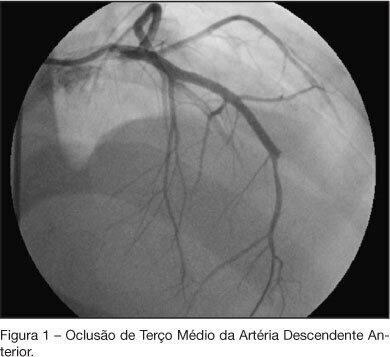
BACKGROUND AND OBJECTIVES: Cocaine is the most commonly used illicit drug and its acute and chronic effects are related to a variety of physiological changes, mainly in the cardiovascular system. This study is a case report of a patient with cardiomyopathy related to cocaine use. CASE REPORT: A 19 year old men, who has been using cocaine and crack since 15 years old, was admitted to the emergency department (ED) in February 2006 with progressive dyspnea during minimal efforts and bloody expectoration. During the physical exam it was observed legs edema, jugular stasis and dyspnea at rest. The echocardiogram demonstrated left ventricular hypocinesia, a 17 mm ventricular thrombus and a 12% ejection fraction. A bleeding from the left upper lobe was identified during a pulmonary bronchoscopy which was treated with arterial embolization. After 48h of the procedure, the patient was asymptomatic and an antithrombotic treatment with warfarin and enoxaparin was started. No obstruction was found at the cineangiography and the patient was discharged after clinical improvement. The patient was admitted again to the intensive care unit in July with intense chest pain and dyspnea at rest. A new cineangiography was performed and it was observed occlusion in the anterior descendent coronary artery. CONCLUSIONS: The cocaine acute effects are commonly seen at the ED but the chronic effects, as the cardiovascular manifestations, can take longer to be correlated as a side effect of cocaine use. Its prolonged use is related to left ventricular systolic dysfunction due to hypertrophy or myocardial dilation, atherosclerosis, arrhythmias, myocyte apoptosis and sympathetic damage.
Search
Search in:


Comments